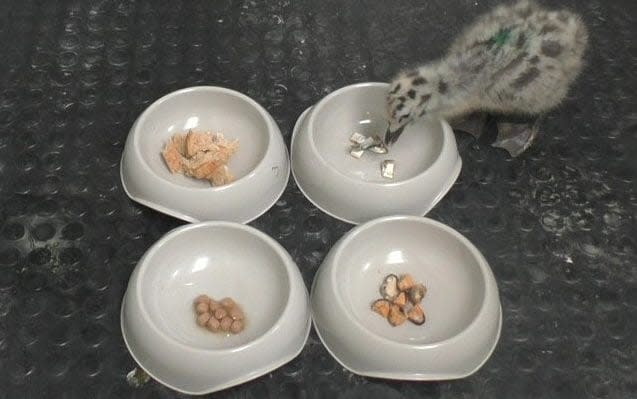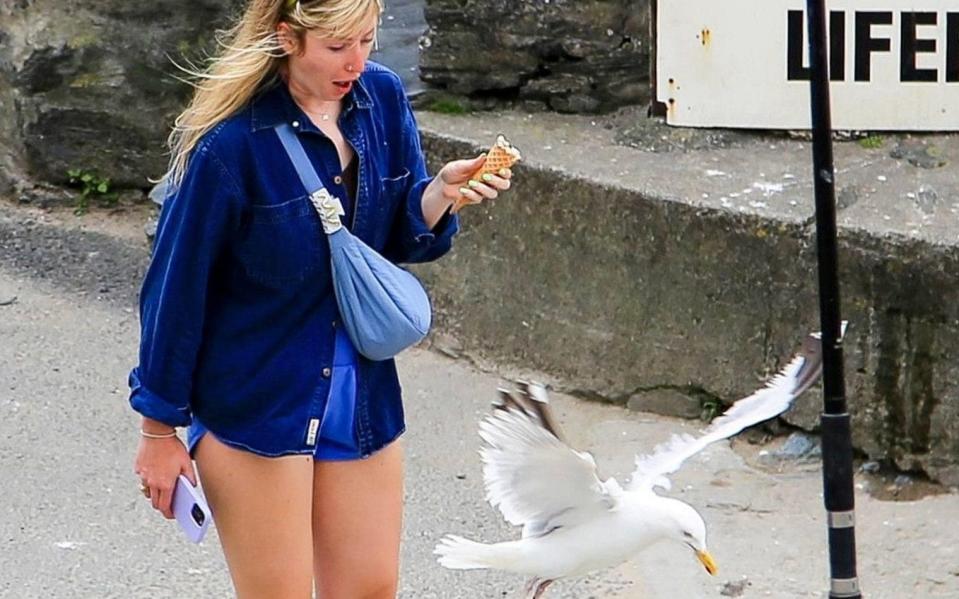The reason why gulls dive-bomb beachgoers for their fish and chips might finally have been solved.
The birds still prefer seafood even when there are multiple other human or pet food alternatives available, scientists have found.
To test their preferences, researchers at the University of Exeter carried out an experiment on 27 herring gull chicks which had been rescued after falling off roofs in towns across Cornwall.
During their spell in captivity, the birds were either given a marine diet, consisting mainly of fish and mussels, or an urban diet of bread and cat food.

However, when they were given a choice of the four foods, the gulls made a beeline for the fish, even if they had been brought up on bread and cat food.
“Our results suggest that, even when reared on an ‘urban’ diet of foods found only around people, these chicks might be unlikely to seek out urban foods as adults,” said lead author Emma Inzani, from the Centre for Ecology and Conservation at the university.
“Human-associated foods are often both reliably present and easy to obtain – but when fish is available they clearly prefer it.”

Britain’s herring gulls are often viewed as aggressive, and have been photographed snatching rabbits and even pet dogs from the ground.
They are also notorious for scavenging dropped food, foraging in bins and making daring raids for fish and chips.
However, the species is on the UK’s list of highest conservation concern due to ongoing population declines, with the number of breeding pairs falling from 750,000 in 1993 to 140,000 today, although some experts argue they are impossible to count as many have moved inland.
A lack of food, disease and the decline of Britain’s fishing fleet has all led to numbers falling in coastal areas.

The combination of reduced fish stocks in British waters, coupled with an overabundance of food waste in towns, has made it more energy-efficient for birds to scavenge on shore rather than fish out to sea.
“Animals can live and exploit urban areas for human food waste,” said senior author Dr Neeltje Boogert, from the University of Exeter.
“However, this does not necessarily mean they’re thriving or that they prefer this food, rather than making the best of a bad situation.
“More research is needed to investigate how the food young animals receive affects their later life, including their food choices, health and breeding.”
The study was funded by the Natural Environment Research Council and the Royal Society.
In 2019, researchers from the University of Exeter found that the best way to stop gulls stealing food was to stare at them directly.
Experiments showed that the birds are surprisingly easy to intimidate, and will back off from a meal if they think someone is watching.
"fish" - Google News
July 11, 2024 at 11:54PM
https://ift.tt/9Yn2UQL
Reason why seagulls dive-bomb your fish and chips revealed - Yahoo! Voices
"fish" - Google News
https://ift.tt/S1qUKts
https://ift.tt/sHCjwnT
Bagikan Berita Ini














0 Response to "Reason why seagulls dive-bomb your fish and chips revealed - Yahoo! Voices"
Post a Comment